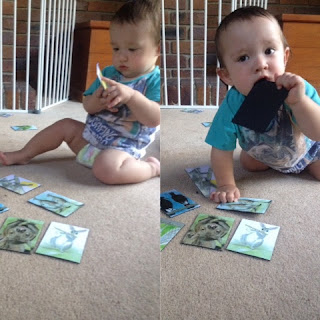Storytelling As A Form Of Expression
For Children With Special Needs
By
Monisha Iswaran
Putting
the effort into teaching your child with special needs how to engage with
activities such as storytelling will benefit them considerably in the long run.
It is one medium through which they can find an outlet for some much needed
self expression. Understanding stories and learning how to retell them to an
audience (even if that audience is only mum and dad sometimes), can help with
reading, writing, self-confidence and numerous other skills that are essential
as your little ones grow up.
The
great thing about storytelling is that you are able to match the level of
difficulty to your child’s ability. There are a wide number of children’s books
available, which suit kids of different reading capabilities. You want to make
sure you increase the difficulty of the books your little one reads by small
increments - enough so that they are continually challenged and learning, but
not so much that they feel discouraged and begin to resent reading as an
activity. Once they have become familiar with the simple storyline, get them to
retell the gist of it back to you. Similarly, you’ll want to increase the level
of detail you expect from them bit by bit. When they first begin this activity,
is likely they will only recap the story in a basic one line summary, or
perhaps tell you a little about the main characters. That is totally fine!
Although you may have to start out by asking them lots of prompting questions,
the need to do so will slowly dissipate as they gain confidence, and hopefully
begin to recall more from what they have read.
Another
wonderful aspect of storytelling is that it is an activity you can engage in
literally anytime, and anywhere. You don’t even really need a book present -
you could have your little one practice by telling you a story about something
that happened in school that day. If they are confident with the activity, they
can even make something up and develop their imagination at the same time.
If
it’s hard to convince your little ones to get excited about storytelling,
combine it with an activity they already find fun! Swings are a great
investment, as your kids will no doubt enjoy playing on them, but they
are able to multitask while swinging back and forth. You could even make a game
out of it, by saying “for each line of the story you tell me, I’ll give you one
big push”, as they rock back and forth! Cots are extremely
useful, as once you put your little one down for a nap or at their bedtime each
night, you can recap the day’s happenings in storytelling form. If they are
about to drift off to sleep, you can take a turn at reading to them or telling
a story. That way they hear your version as an example, and we all know that’s
how kids learn best.
The
best thing about storytelling is that you can truly use it as a
confidence-booster for kids. Particularly in the case of children with special
needs or those with learning disabilities, issues such as self esteem and
believing in their own capabilities are extremely important for their
development. Activities that involve public speaking, language and can be
adjusted to their current level of learning are perfect for doing so. Not to
mention, getting lost in a love of reading and storytelling can be a fantastic
form of self-expression and the perfect escape from the struggles of everyday
life.
As
a parent, encouraging your child to participate in such activities, especially
in your household, outside of just school is particularly important such that
your little ones start to identify storytelling as more than just something
they have to do, but rather a hobby they can turn to when they feel down, or
just need an emotional release. The benefits are numerous, it’s easy to
implement and there aren’t any downsides - so what are you waiting for?













